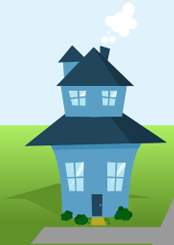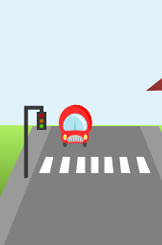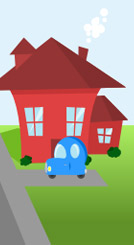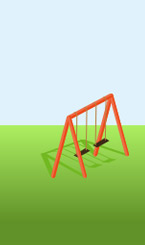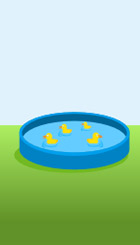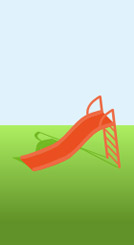Kidsafe Tasmania
NATIONAL BURNS AWARENESS MONTH - JUNE 2025
Burns prevention starts at home!
Kidsafe Australia, in partnership with the Australian & New Zealand Burn Association (ANZBA), is urging parents and carers to be extra vigilant in and around the home this winter to prevent burns, and ensure they are aware of the correct first aid steps for burns.
The call comes during National Burns Awareness Month, an Australian-wide campaign run by Kidsafe Australia.
“If a burn happens, then it’s critical that cool running water is applied to the burn area for 20 minutes. Administering correct first aid measures can make a significant difference in the rehabilitation and long-term outcome of the burn injury”, said Christine Erskine.
According to data from the Burns Registry of Australia and New Zealand (BRANZ), in 2023/24, 2,802 patients were admitted to burns units across Australia and New Zealand, with 23.1% of those cases classified as paediatric (0-15 years).
BRANZ identified that 56.8% of total burn injuries occurred in the home or usual place of residence, while 29.2% of paediatric cases occurred when playing near a person preparing food or drink.
Administering the correct first-aid treatment in the first three hours of a burn injury can significantly reduce the severity of minor burn injuries.
Fortunately, 59.5% of all patients received gold-standard first aid, which is 20 minutes of cool running water within three hours of the injury, highlighting the importance of community education on burn and scald first aid.
Christine Erskine, Kidsafe NSW CEO, stressed the importance of administering correct first aid immediately in the event of a burn or scald, which should include:-
Prevention and treatment of burns and scalds
- Prevent – take action to prevent burn and scald injuries. Learn more at: https://kidsafe.com.au/national-burns-awareness-month/
- Remove – remove yourself from danger. Remove any clothing, jewellery or nappies from the burn area unless stuck to the skin.
- Cool – place the burn under cool running water for twenty minutes. Never place ice, oil or butter on the burn.
- Cover – protect the burn with a clean dressing
- Seek – seek medical attention if the burn or scald is on the face, hands, lap or feet, is bigger than a 20-cent piece or is blistered
- For more information about National Burns Awareness Month and burns prevention and first aid resources, please visit:
Kidsafe Australia - ANZBA – the peak body for health professionals responsible for the care of burn injuries in Australia and New Zealand
- Facebook@kidsafeaustralia
About National Burns Awareness Month
National Burns Awareness Month is an initiative run by Kidsafe Australia. It is held annually in June, as there is a significantly increased risk of burns and scalds during winter months. A series of national educational and awareness initiatives will be run throughout the month to raise awareness regarding the prevention and correct first-aid treatment of minor burns.
TYPE 1 CHILD CAR RESTRAINT FITTERS COURSE 29th & 30th MAY 2025
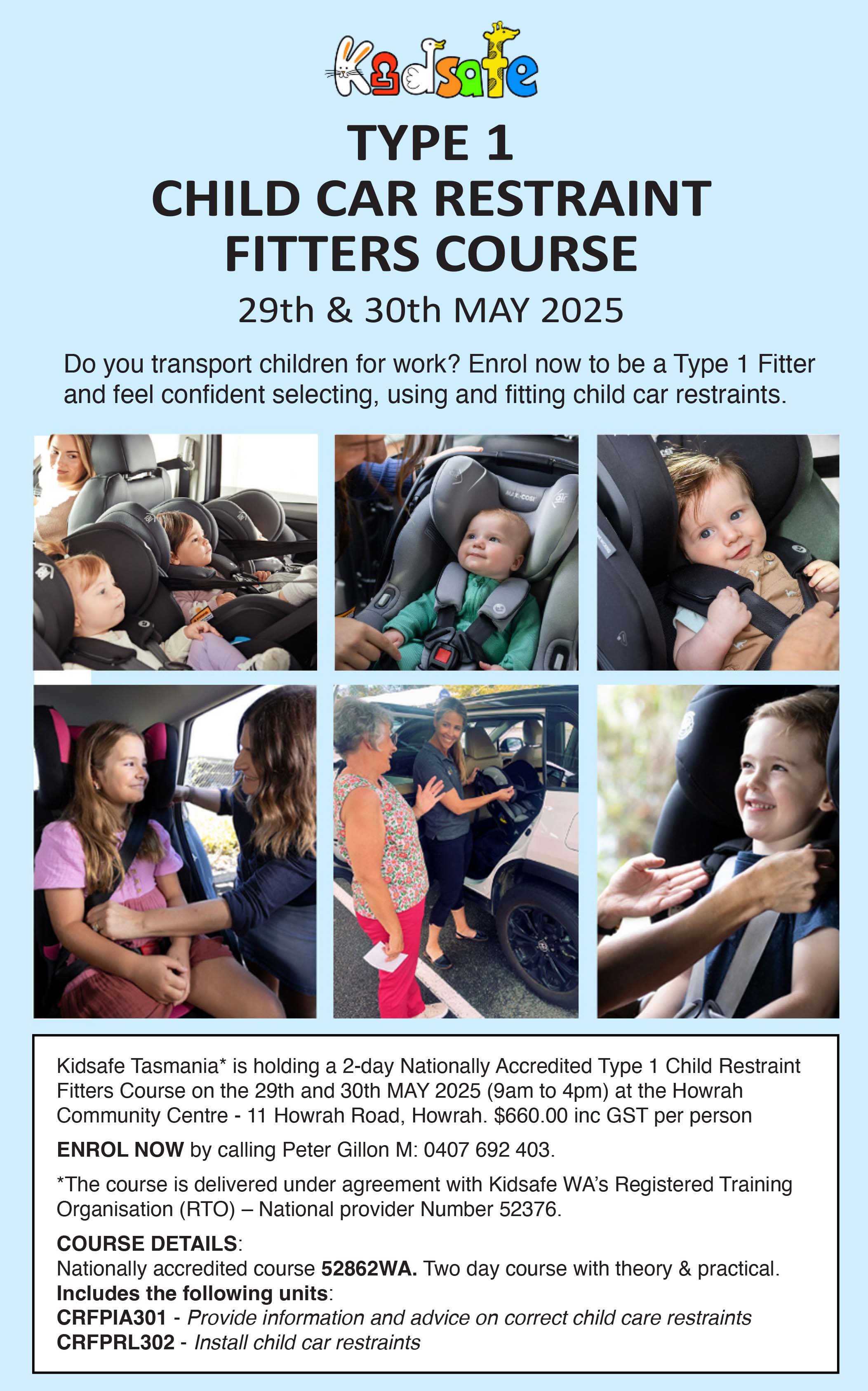
KIDSAFE NATIONAL PLAYSPACE DESIGN AWARDS
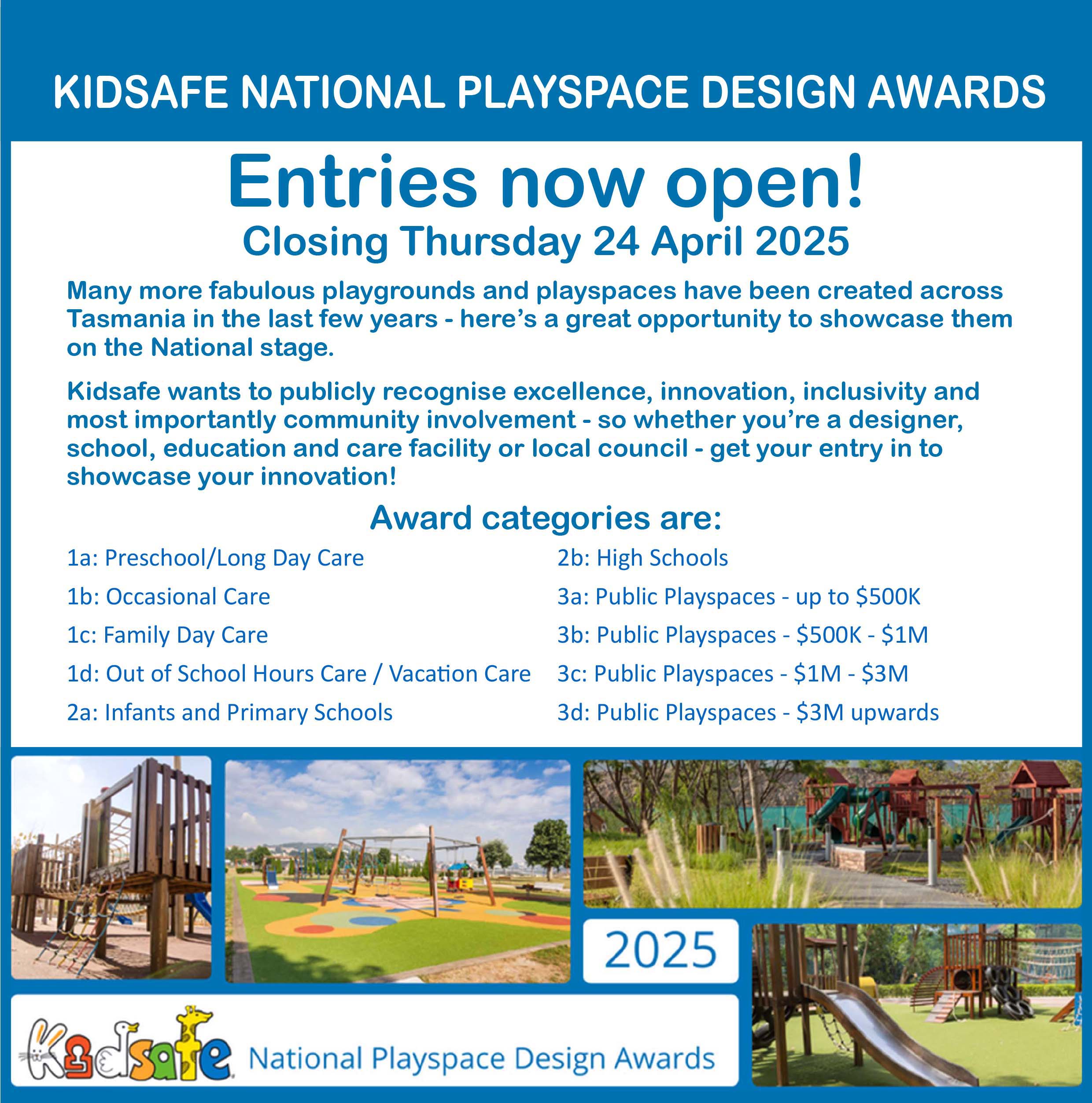
Click here to download the entry guide. Click here to enter.
GREAT NEWS! Kidsafe Australia is excited to announce the return of the National Playspace Design Awards in 2025. Since our last celebration of great places to play, many more playgrounds and playspaces have been created across Australia and Kidsafe wants to publicly recognise excellence, innovation, inclusivity and most importantly community involvement.
This year we are very excited to announce that Play Australia, in conjunction with IPA, will showcase the Awards presentation at the IPA Asia Pacific Play Conference in Melbourne. You will be able to join us at this groundbreaking event, bringing together a diverse array of stakeholders who are ‘leading the way for play’ in the Asia Pacific.
ENQUIRIES ABOUT THE AWARDS
Kidsafe NSW Playground Advisory Unit
P: Kim Cooke - 0447 636 818
E: SCHN-Kidsafe@health.nsw.gov.au
CHILD RESTRAINT FITTING AND CHECKING IN 2025
Our expert team will make sure your restraints are correctly fitted to your vehicle for complete peace of mind!
For child restraint checks and fittings call:
Hobart - Peter Gillon - 0407 692 403
Launceston - Fiona - 0409 560 213
Burnie / Devonport - Shona - 0435 779 887

For holders of a Health Care Card, we are able for offer free child seat fittings and advice, conditions apply.
We can even send you a free safety guide to your home, to help you check that your child seats are correctly and safely fitted to your car.

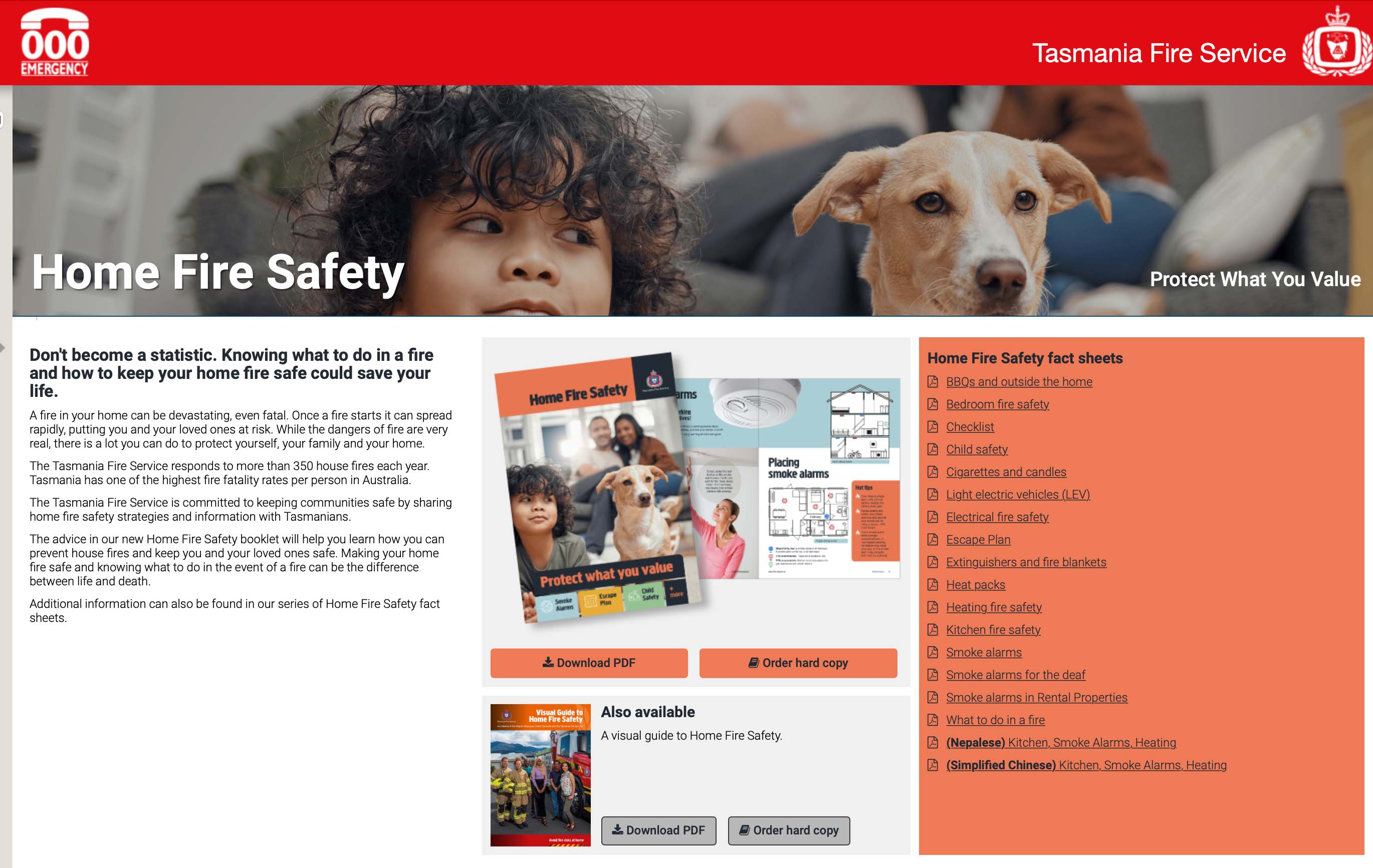 THE TASMANIA FIRE SERVICE WINTER CAMPAIGN
THE TASMANIA FIRE SERVICE WINTER CAMPAIGN
The Tasmania Fire Services website has some great Home Fire Safety fact sheets including some Simplified Chinese and Nepalese sheets.
These are available to download by clicking on the image to left, or the following link: Click here
These great resources really complement our Burns Awareness Month messaging.
20 minutes of cool running water is critical!
“If a burn or scald happens, it is critical that cool running water is applied to the area for 20 minutes. Correct first aid can make a significant difference in the rehabilitation and long-term outcome of a scald or burn injury”, said Jenny Branch-Allen, CEO Kidsafe Tasmania.
Administering the correct first-aid treatment in the first three hours of a burn injury can significantly reduce the severity of minor burn injuries. In winter we embrace spending time with friends and family around fire pits, where significant burn injuries can occur. This winter Kidsafe Australia is encouraging everyone to learn the correct first aid steps to treat a burn injury.
National Burns Awareness Month is an Australian-wide campaign run by Kidsafe Australia to inform and educate on the preventative measures and treatment of burn injuries. With an increase in fire pit sales and usage, burn injuries are becoming more frequent. The major focal point of the campaign is to promote the correct first aid should a burn injury occur.
Fire pit burn injuries can result from direct contact with the flames or coals and through heat transference onto other surfaces. It takes only a matter of seconds before a life-long injury can occur. Preventing a fire pit burn injury for all ages is the safest option.
According to data from the Burns Registry of Australia and New Zealand (BRANZ), in 2021/22, 2,786 patients were admitted to burns units across Australia and New Zealand. BRANZ identified that 34.5% of burn injuries were a result of a burn from a flame. A scald caused a further 32.7% of injuries.
Fortunately, 56.9% of all patients received gold-standard first aid, which is 20 minutes of cool running water within three hours of the injury. This is a significant improvement, but more awareness is still needed to ensure all have access to gold-standard first aid.
“If a burn happens, then it’s critical that cool running water is applied to the burn area for 20 minutes. Administering correct first aid measures can make a significant diberence in the rehabilitation and long-term outcome of the burn injury”, said Holly Fitzgerald.
Prevention and treatment of burns and scalds
- Prevent – take action to prevent burn and scald injuries. Learn more at: https://kidsafe.com.au/national-burns-awareness-month/
- Remove – remove yourself from danger. Remove any clothing, jewellery or nappies from the burn area unless stuck to the skin.
- Cool – place the burn under cool running water for twenty minutes. Never place ice, oil or butter on the burn.
- Cover – protect the burn with a clean dressing
- Seek – seek medical attention if the burn or scald is on the face, hands, lap or feet, is bigger than a 20-cent piece or is blistered
For more information about National Burns Awareness Month and burns prevention and first aid resources, please visit:
- Kidsafe Australia
- ANZBA – the peak body for health professionals responsible for the care of burn injuries in Australia and New Zealand
- Facebook @kidsafeaustralia
About National Burns Awareness Month
National Burns Awareness Month is an initiative run by Kidsafe Australia. It is held annually in June as there is a significantly increased risk of burns and scalds during winter months. A series of national educational and awareness initiatives will be run throughout the month to raise awareness regarding the prevention and correct first-aid treatment of minor burns.
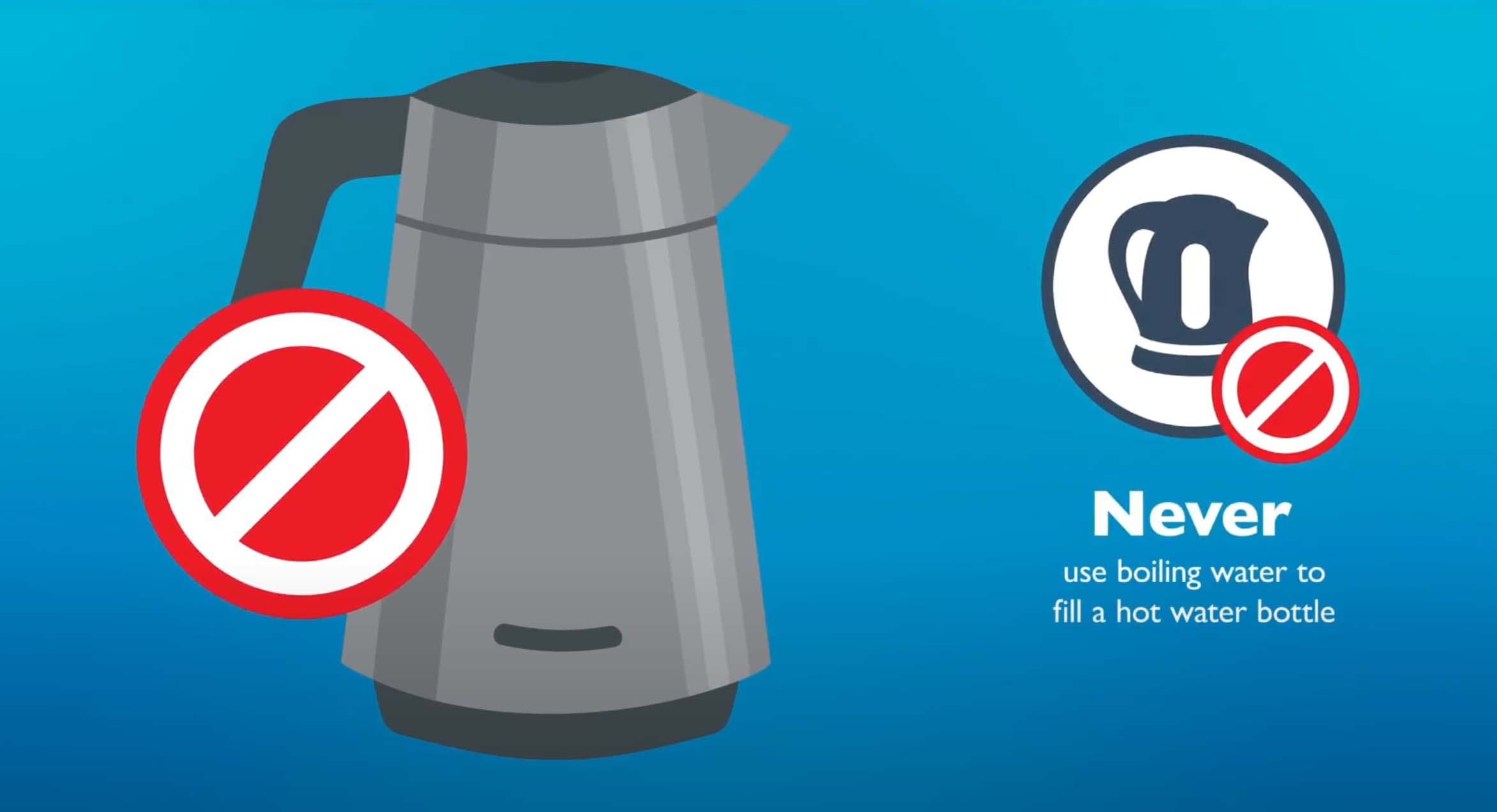 HOT WATER BOTTLE SAFETY
HOT WATER BOTTLE SAFETY
Click here to watch an important new video on using Hot Water Bottles safely, developed in partnership with the Royal Hobart Hospital Burns Unit.
NATIONAL ROAD SAFETY WEEK 2023
Kidsafe Tasmania supported the National Road Safety Week Campaign "Pledge to Drive so Others Survive".
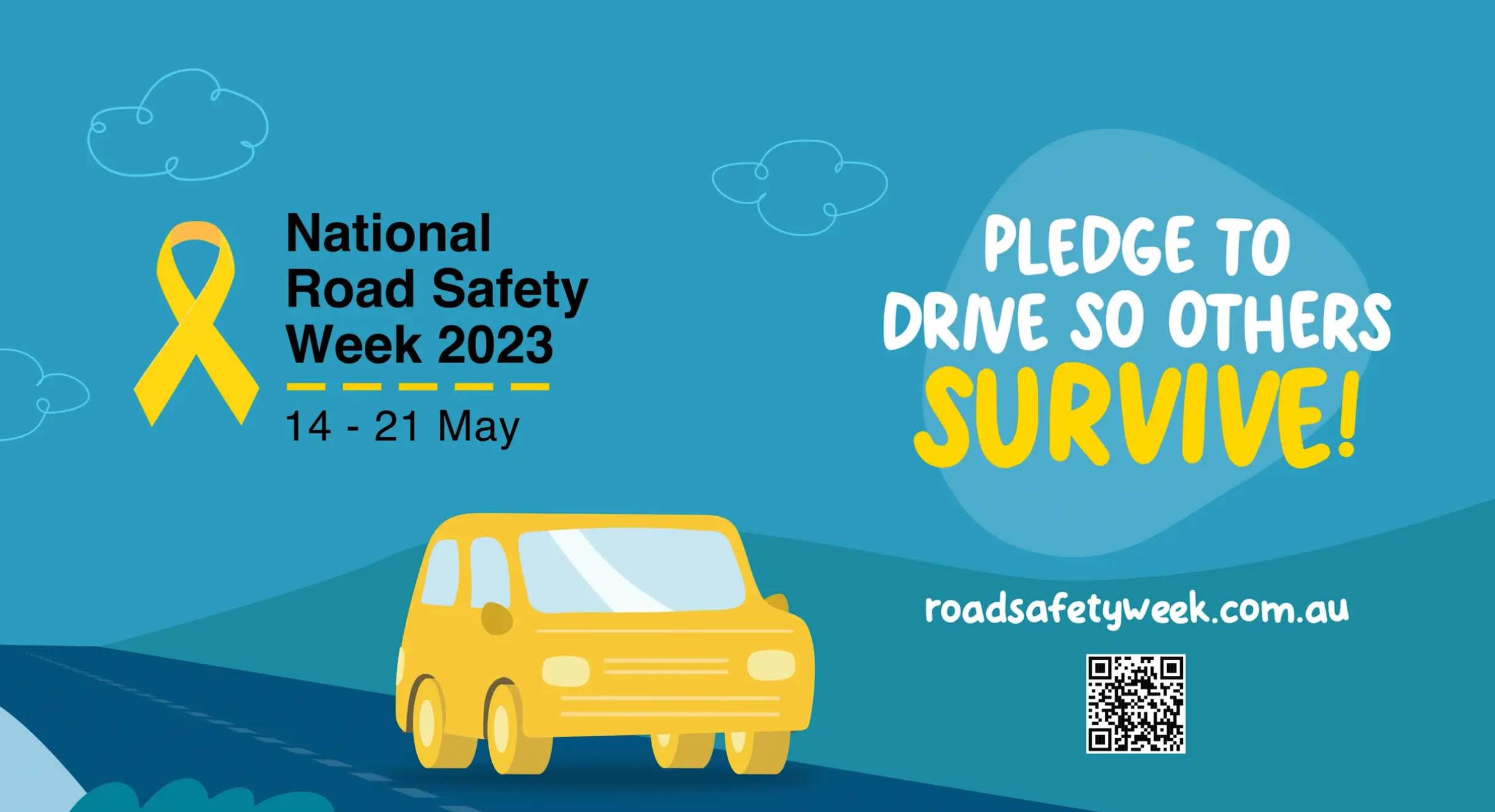
Kidsafe works proactively around Australia with parents, communities and governments to minimise the burden of childhood injury on our health systems by increasing awareness, providing child safety education, advocacy and reviewing the causes and prevention of childhood injuries.
A range of information sheets and brochures covering child protection and child safety issues is also available free-of-charge.
Anyone interested in learning more about child safety can phone Kidsafe Tasmania on 0417 381 721 or send a request by email to jenny.branchallen@gmail.com
Summertime and the living should be easy!
Here are some tips to help you have a great summer with your kids.
Kidsafe Tasmania wishes all our families and friends a very merry & safe Christmas. Below we have put some very useful tips to help you through the holidays and ensure you have a wonderful and safe time with your kids.
"The most popular summer activities for children are biking, swimming, walking, going to the playground and going on a holiday."
Water Safety:
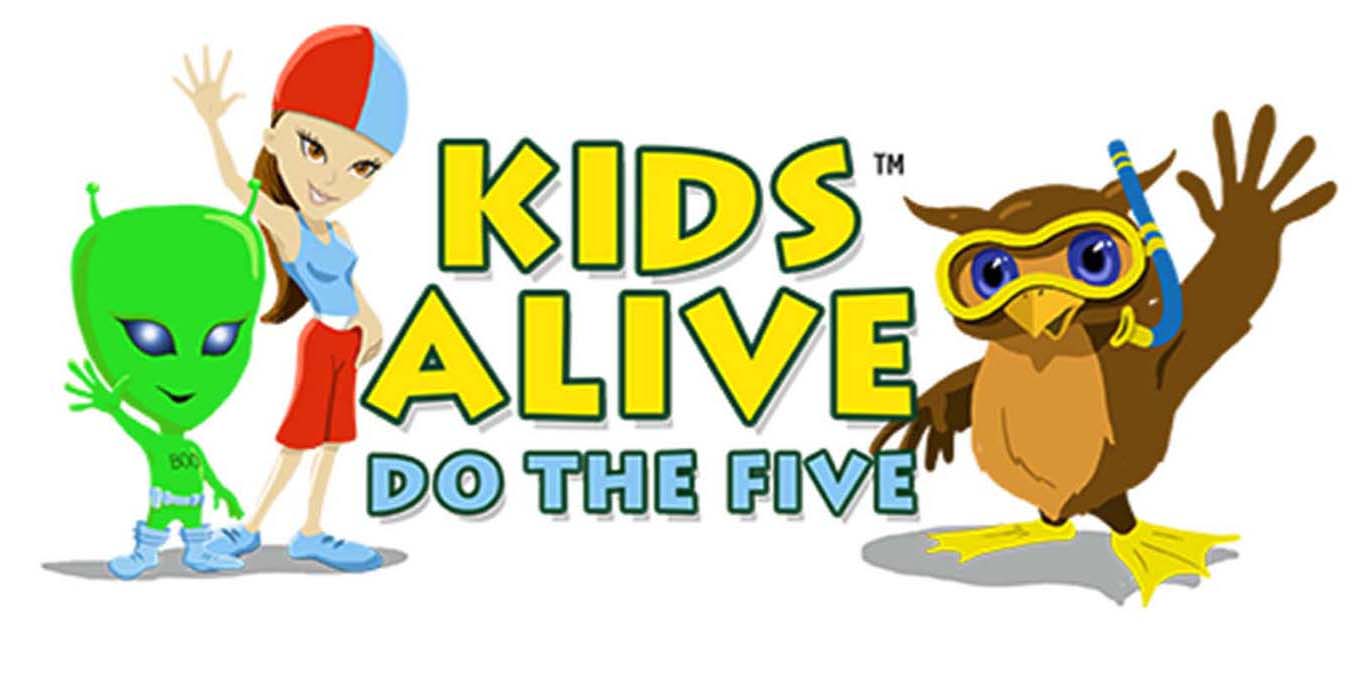
- Always supervise children when in and around water.
- Children under age 5 have the highest risk of drowning. They are attracted to water, but they don't understand the risks.
- Most drownings of children under age 5 happen when they are playing near water. Children can get into the water quickly and silently without adults being aware.
- Older children are most likely to drown when they are swimming in a river, lake, or other open body of water. They may be used to swimming in a pool but don't understand the risks in other types of water.
Safe Celebrations:
- Don't neglect the supervision of small children during family gatherings and holiday parties. If you plan to drink at a party, leave children at home with a trained, trusted babysitter. Be sure the sitter knows how to contact you and what to do in the event of an emergency.
- Remember to clean up after a holiday party. Some party leftovers can be hazardous to children.
- Be aware that other homes you visit may not be set up for children. Special care needs to be taken.
Travel Safe:

- Be sure to use appropriate car seats and seat belts for your child's age and size. If you are traveling in someone else's car, arrange ahead of time to borrow or rent the appropriate car seat for your child.
- Check to ensure the child restraint meets Australian Standards.
- Exercise extra caution around roads during the holidays. There may be heavy traffic, poor weather, and the possibility of alcohol use by other drivers.
- Create safe play areas away from moving vehicles. Know where children are, and ensure they are in the care of another adult before moving vehicles to prevent driveway runovers.
- If you must leave the car, even to run a quick errand - be Kidsafe and take your kids with you. Where possible plan car travel for the cooler part of the day, provide plenty of cool water, light snacks and make frequent stops every two hours to enable everyone to stretch their legs.
Toy Safety:
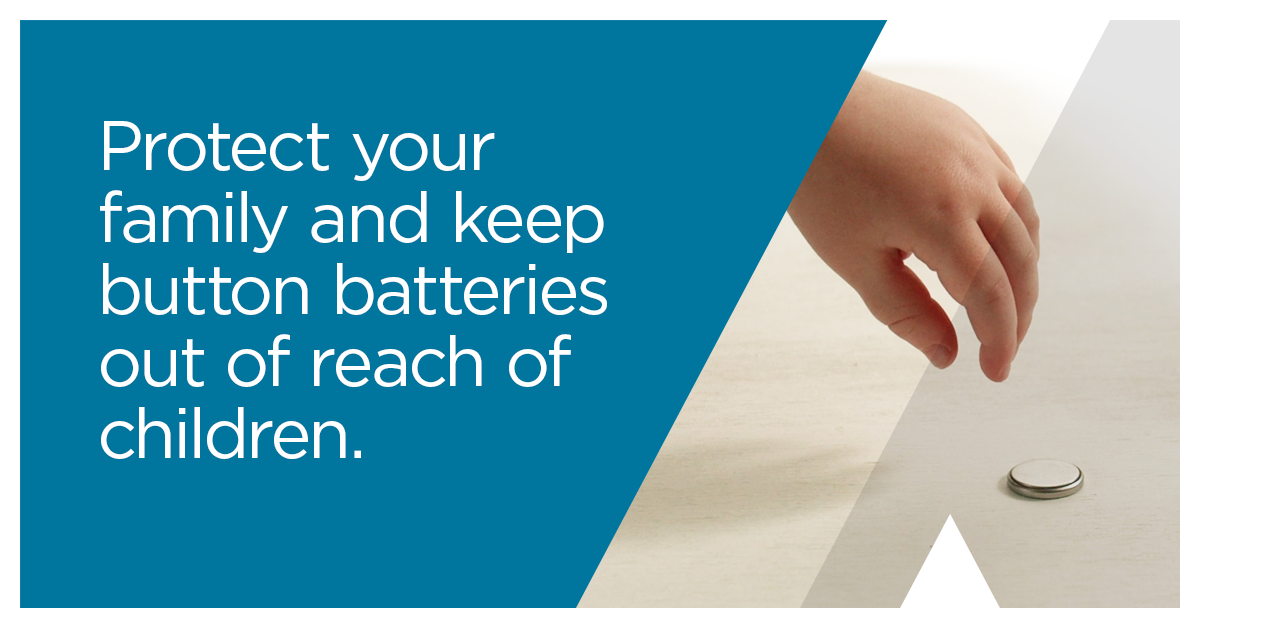
- Follow the age recommendations on toys even if you believe that your child is exceptional, as these pertain to the safety of the item.
- To prevent choking, buy toys for children that are marked suitable for children under three.
- Inspect toys to make sure that they don't have parts that could break off and be swallowed.
How to be SunSmart
- Use SPF30 or higher broad-spectrum, water-resistant sunscreen on your child’s face, arms, hands, and any other skin that is not covered.
- Apply sunscreen 20 minutes before going outside and reapply every two hours.
- Sunscreen does not completely block out all UV radiation and should never be the only method of sun protection.
Burns Prevention - a critical message
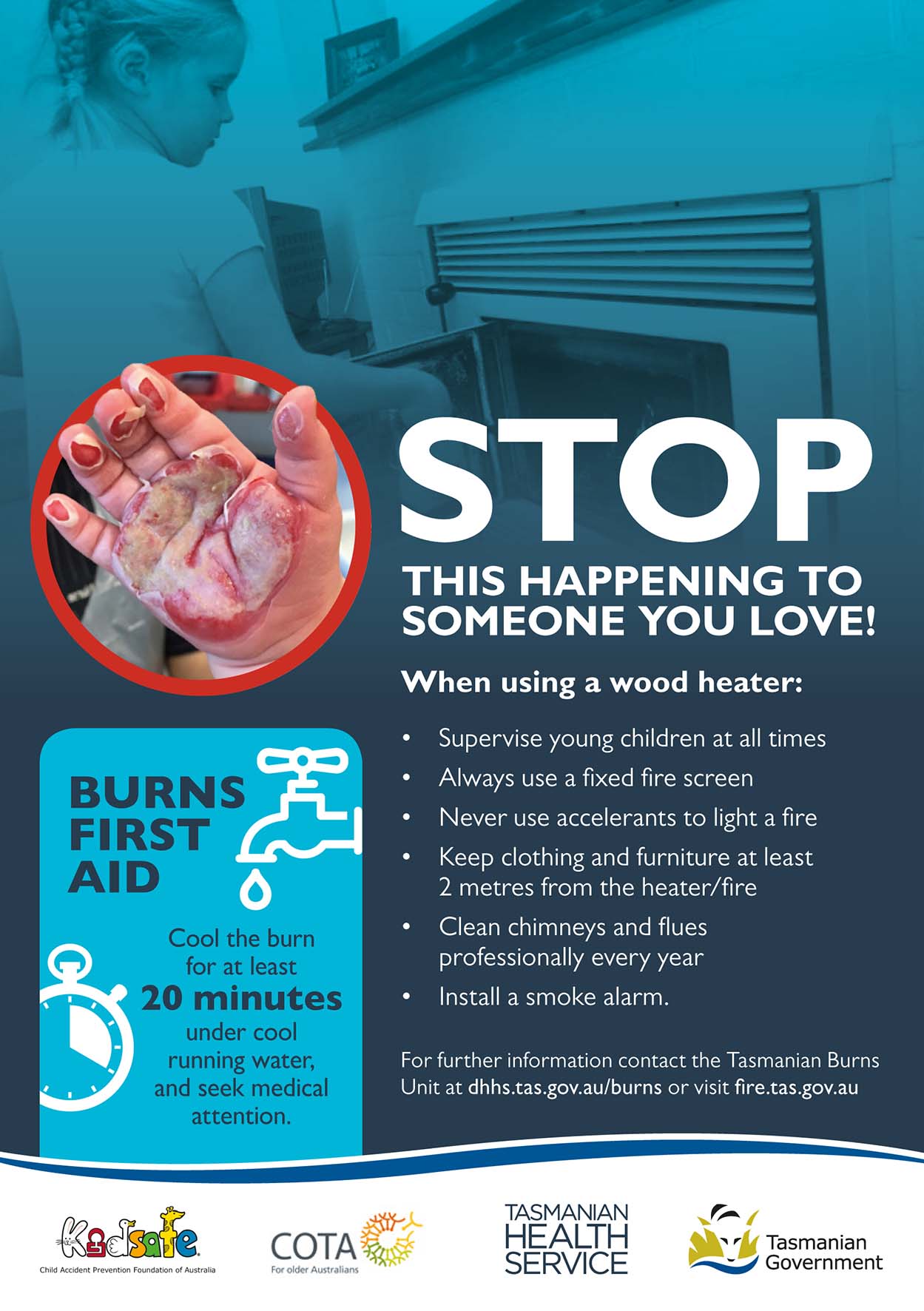
Videos - prevention and first aid for burns and scalds
Below are links to a range of videos on the prevention and correct first aid treatment for burns and scalds.
Burn Safety
How NOT to Treat a Burn
Campfire Safety
Hot Liquid Scalds
Preventing Burns and Scalds in Children
Soft Fall in Playgrounds
.gif)
Thinking about constructing a playground or adding to the one you have? Here is some advice to help you get started.
Most playground injuries can be prevented or their severity reduced by good planning, design and maintenance to avoid playground hazards. It is important to note that the Australian Standards for playgrounds recognise that children need opportunities to experience risk and challenge in playgrounds and the standards focus on the elimination of hazards likely to cause serious life threatening injuries. The standards do not advocate risk-free playgrounds.
The following fact sheets provide some excellent advice for your playground planning:
Australian Standards for Playgrounds
Keeping Your Child and Dog Safe
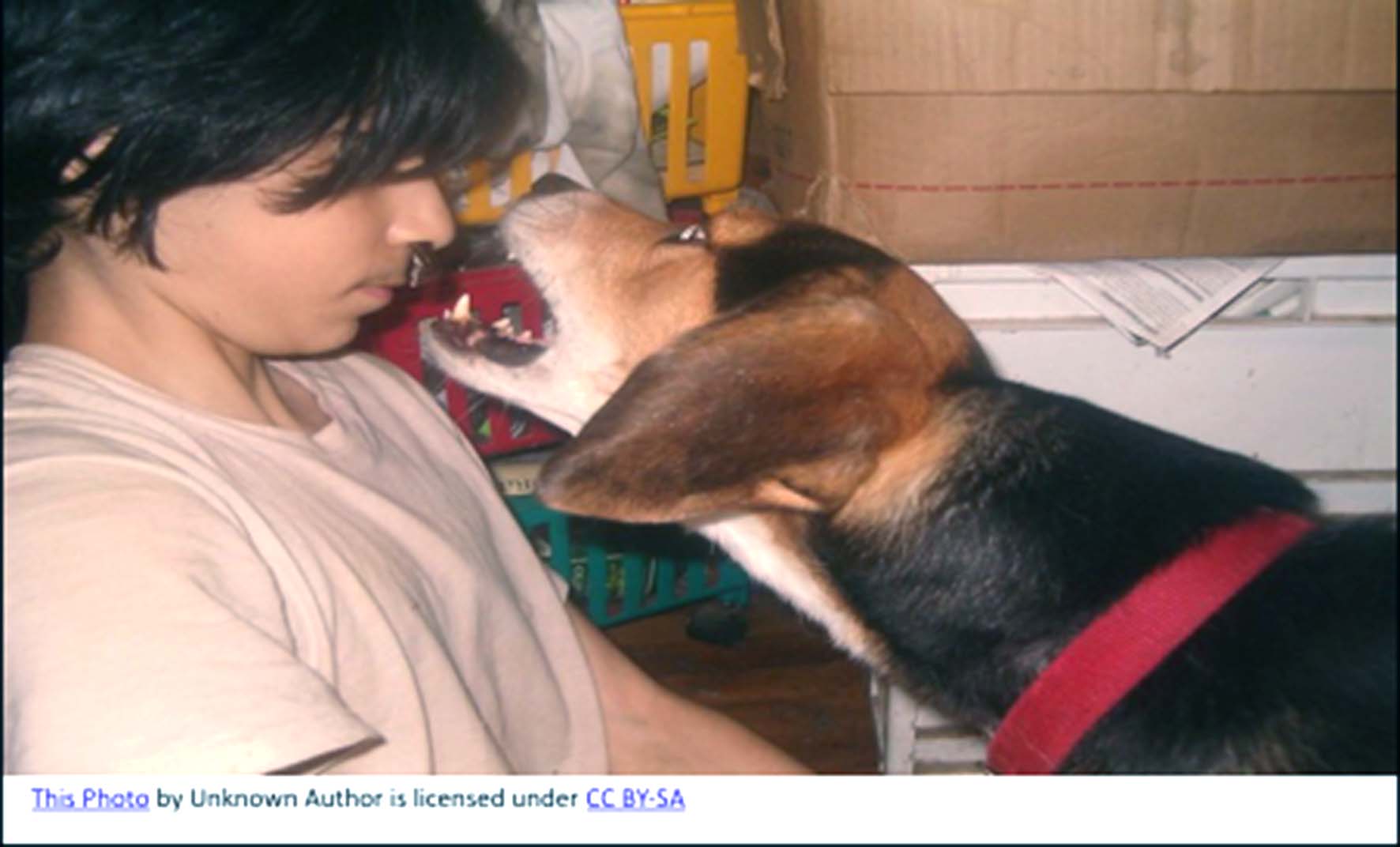
Dog bite
Children under five years of age are at greater risk of dog bites.
It is common for young children to be bitten while doing child-like inquisitive things- playing with the dog’s food, chasing the dog, or other things that the child thinks are play but to the dog are teasing.
Safety steps to prevent dog bites:
- Remember any dog can and may bite
- Keep babies and young children away from your dog, especially at feeding times
- Ask friends and family to keep their dogs away from the children
- Stay within reach if a dog is near children
- Train your dog to obey commands
- The dog should obey ‘come’, ‘sit’, commands from all family members
- Buy the right dog for your family
- As the RSPCA or a vet about the dog best suited to your needs
Dogs in Cars
Pets aren’t children, but with respect to car travel, you should treat dogs as you would young kids.
- Your dog should always sit in the back seat, secured with a safety restraint. Don’t let them ride in the front seat.
- Yes, small dogs are cute and may fit in your lap perfectly, but you should not drive this way or allow your small dog to lie on a dashboard or other areas in the vehicle. This causes a distraction for you and increases your dog’s chances of being injured.
- Never leave your dog alone in the car, never leave your dog alone in the car with a child.
- Unrestrained Dogs -Become Projectiles. The force of a collision will send any loose objects in the vehicle flying, including unrestrained pups. This is dangerous not only for the dog, but also for any other people in the vehicle who might be struck by a canine cannon-ball careening through the vehicle.
Don’t let this happen to your dog
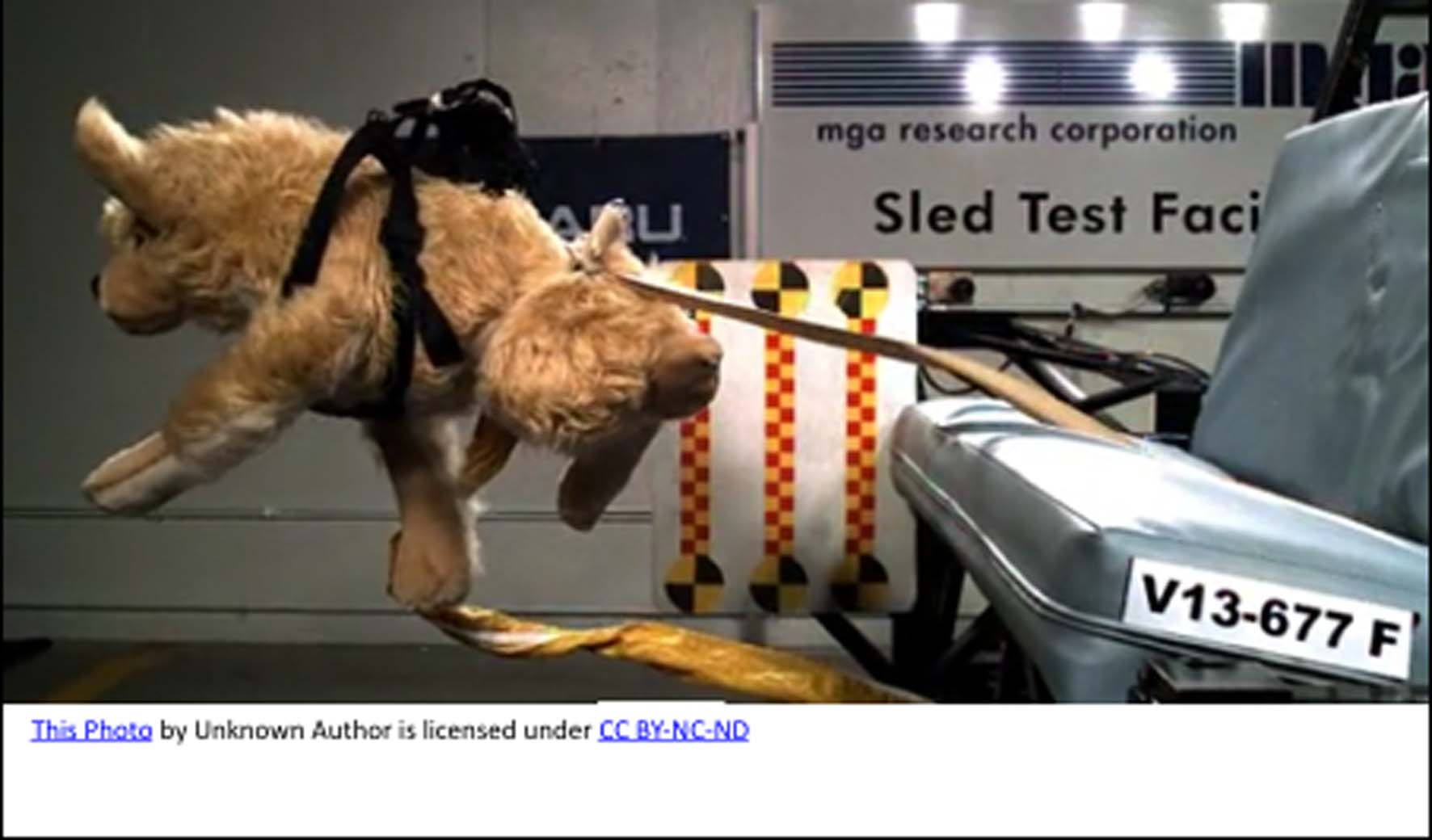
Recognising Tasmanian Grandparents' love and care for their grandchildren.
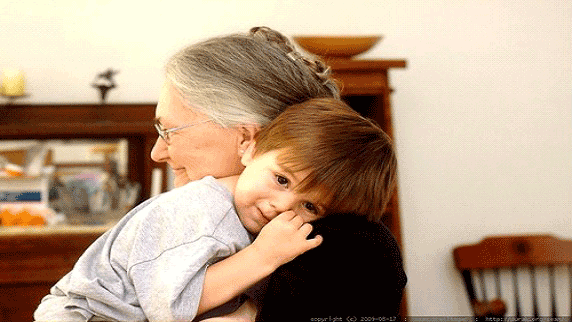
Kidsafe Tasmania recognises and thanks Tasmanian Grandparents for the love and care they give to their grandchildren.
Grandparents increasingly provide support for their families by minding grandchildren while
parents return to work.
We also recognise and thank grandparents raising grandchildren.
Kidsafe Tasmania understands the challenges of raising children and keeping them safe from unintentional injury and remind grandparents we are here to provide them with support.
Kidsafe provides advice on child proofing your home, how to reduce the chances of unintentional injury and correctly fitting and using child restraints.
Please contact us on 0417 381 721 to enquire on how we can help you.


